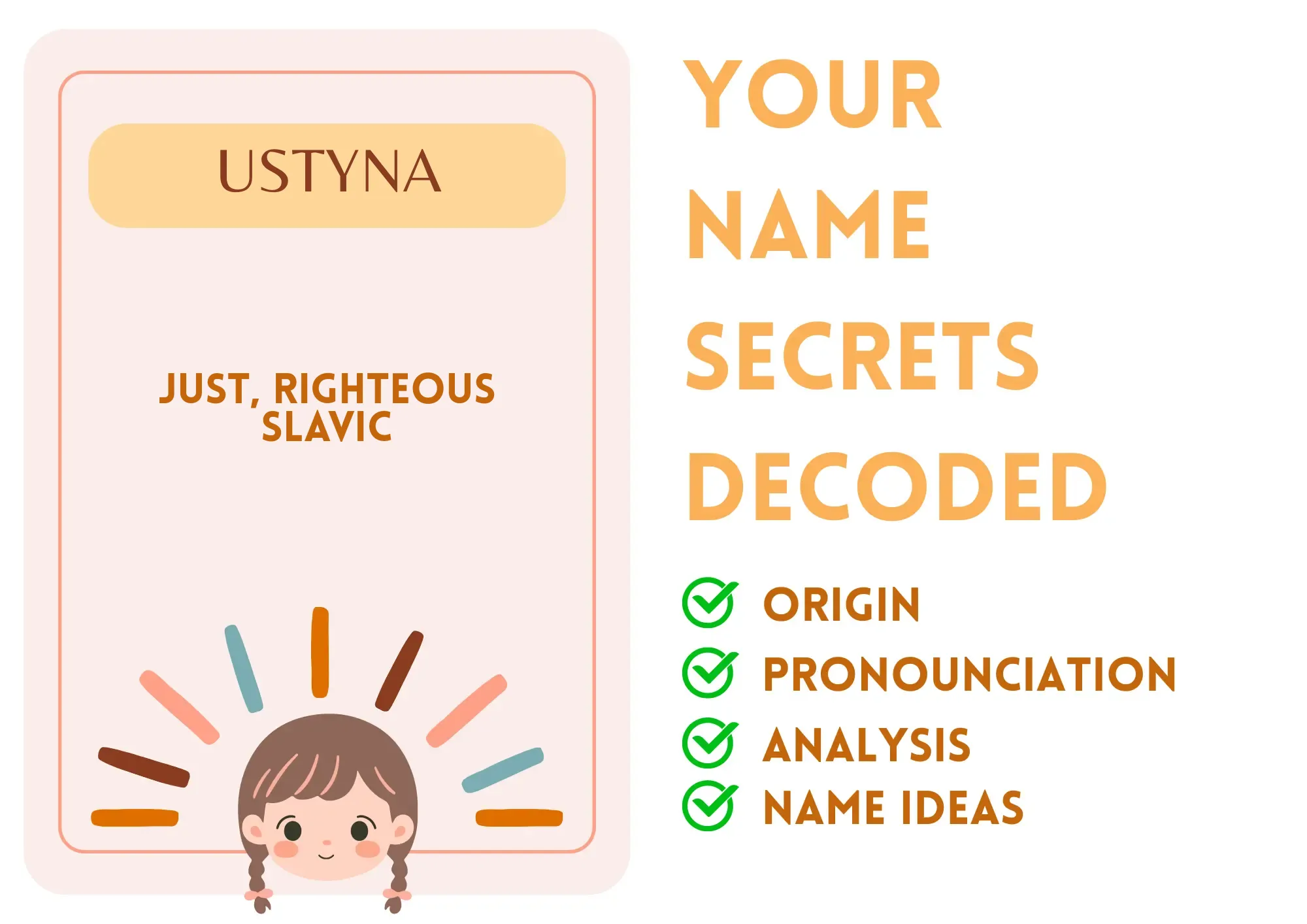
Ustyna
Ustyna is a beautiful name of Slavic origin, derived from the word meaning "just" or "righteous." It is primarily used in Eastern European countries, particularly among those with Slavic heritage. The name is predominantly feminine, appealing to parents who appreciate names with strong moral significance.
This name holds a cultural richness, often associated with attributes of justice and fairness, making it a thoughtful choice for a child. The name is fairly easy to pronounce for speakers of various languages, though it may appear unique to those unfamiliar with Slavic nomenclature.
While Ustyna may not be widely represented in contemporary popular culture, it resonates well within literary circles and is appreciated for its melodic sound and meaningful implications.
Basic Information
Gender: Girl
Sounds Like: oo-STEE-nah
Pronunciation Explanation: The first syllable is pronounced like "oo" in 'food'. The second syllable rhymes with 'tea', and the last syllable is pronounced as 'nah'.
Summary and Meaning
Meaning: just, righteous (Slavic)
Origin: The name Ustyna has Slavic origins, commonly found in countries like Poland and Ukraine, where it is cherished for its meaning and phonetic beauty.
Usage: Ustyna is traditionally and predominantly a feminine name.
Name Number (Chaldean)
Name Number (Pythagorean)
Religious and Cultural Significance
Religion: Christian
Background: Ustyna is often associated with Christian values, particularly reflecting ideas of righteousness and moral integrity.
Cultural Significance: Ustyna is valued in Eastern European cultures for its connotations of fairness and virtue, making it a name associated with strong character and moral grounding.
Historical Significance: Historically, names like Ustyna have been used in Slavic communities to denote righteousness, often given to those expected to uphold moral values or as a reflection of familial aspirations.
Popular Culture
Literature and Mythology: While not specifically prominent in global literature, Ustyna may have appearances in local folklore or stories where righteousness plays a pivotal role.
Movies and Television: There may not be widely recognized film or television characters named Ustyna, but its presence in Eastern European films could evoke representation of traditional values.
Feelings and Perceptions
Perception: Ustyna is generally viewed positively, resonating with those who value names with moral significance. Its melodic quality can be appreciated across various cultures.
Positive Feelings: Unique, meaningful, strong, virtuous, beautiful.
Negative Feelings: Some may find it unusual or difficult to pronounce initially.
Practical Considerations
Ease of Writing and Calling: Ustyna is relatively easy to write and pronounce, consisting of six letters and three syllables, making it memorable yet distinctive.
Common Typos and Misspellings: Ustina,Ustyna,Ustyna,Ushtina
Common Nicknames: Usti,Tina,Nina
Compatibility Analysis
Famous Persons Named Ustyna
No results found for Ustyna.
Related Names
Similar Sounding Names:
Ostina,Justina,Kristina,Lucina